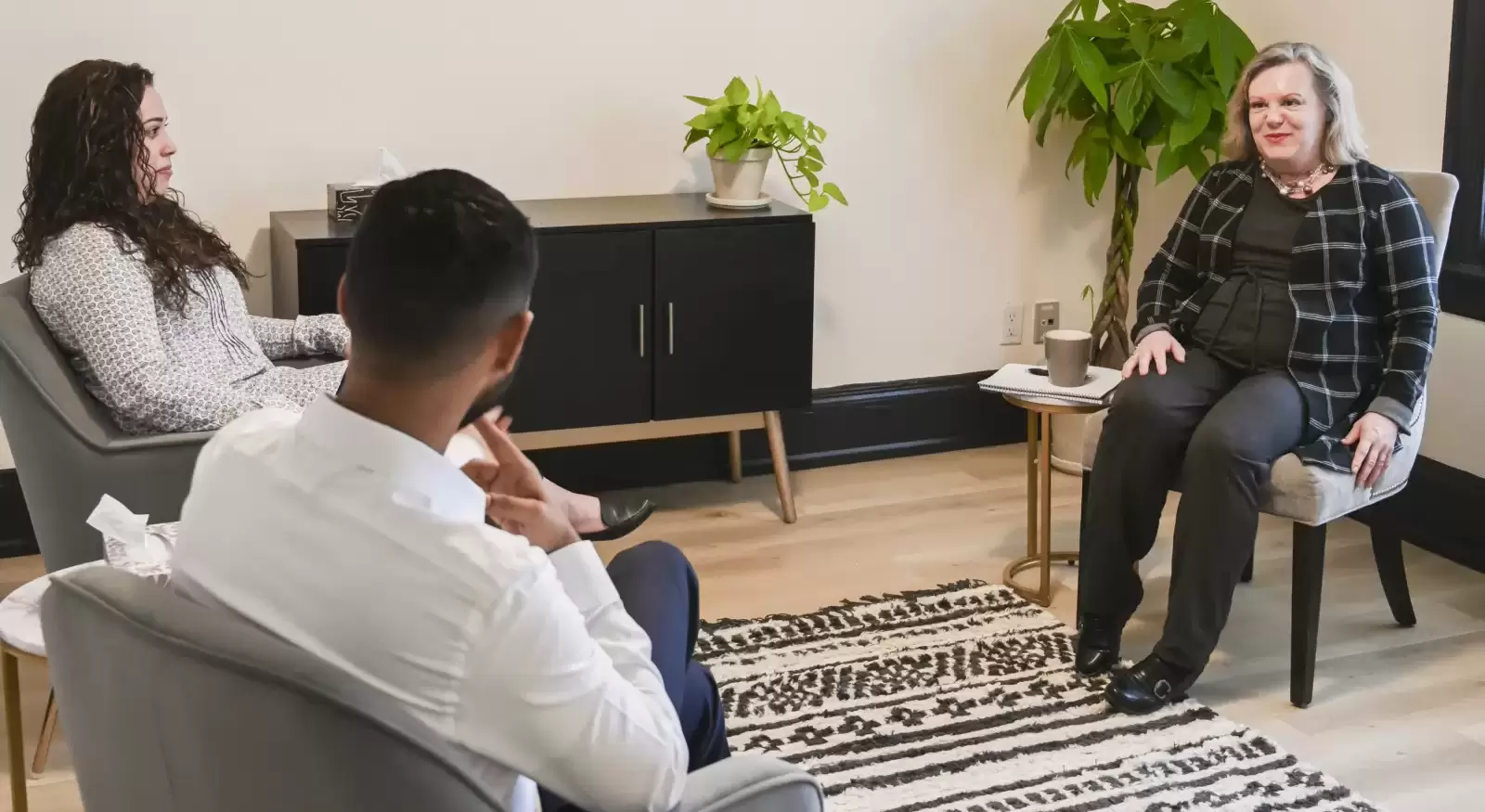
How Marriage Counselling Can Help Recovery
The journey to recovery is a long and winding road. There are setbacks. Some days are easier than others. No one is perfect, and no story is the same. Every individual in recovery is unique. Strong and healthy relationships with great communication are key ingredients to a successful recovery story. However, substance use disorder (SUD) affects more than just the individual struggling. It affects their friends, co-workers, and family and creates a vast marital divide. Luckily, SUD and marriage counselling can pave the way to healing.
The Health Effects of SUD
According to the Government of Canada, SUD is “A treatable medical condition that affects the brain and involves compulsive and continuous [substance] use despite negative impacts to a person, their family, friends, and others.” Someone with SUD may use legal or illegal drugs, alcohol, or medications.
Physical Health Effects
There are many negative impacts associated with SUD. It affects the individual both mentally and physically. Some of the physical effects caused by SUD include:
- Lowered immune system
- Cardiovascular complications
- Appetite changes, abnormal weight loss/weight gain
- Lung disease
- Liver damage or failure
- Stroke
- Cancer
Mental Health Effects
SUD affects an individual’s mental health as well. It can cause new complications and even make preexisting mental health disorders worse. The following are a few of the mental health effects of SUD:
- Anxiety
- Mood swings
- Restlessness
- Insomnia
- Psychosis (schizophrenia)
- Depression
- Trouble with memory
- Inability/low ability to make decisions
- Poor attention span
The effects of SUD range far and wide, and they don’t stop with the individual struggling. SUD effects pour over into the individual’s relationship and harmfully impact their marriage in many ways.
Marital Effects of SUD
The ripple effects of SUD are destructive to everyone around the individual struggling. Marriages are fragile once trust has been broken by SUD. It can be difficult to recover and rebuild that trust without taking the proper progressive steps. Many individuals begin marriage counselling before ever stepping foot into a recovery program. SUD, without being treated first, can significantly prevent any possible success from marriage counselling.
It is hard for the spouse to trust their partner who is abusing substances. Without this trust, marriages tend to fall apart quickly. Anger and hurt are often followed by the loss of trust and result in arguments and fights. Additionally, SUD can put significant financial stress on a marriage as excessive substance use comes at a cost. It can also, depending on the substance, cause genuine legal concerns due to the vast number of illicit drugs available.
When stress levels are already soaring from the impacts and concerns that SUD poses on a marriage, unaddressed marital issues often surface. Without proper care, these issues can spiral out of control. However, if the individual struggling pursues treatment, studies have shown marriage counselling can significantly strengthen recovery outcomes.
The spouse of the individual facing SUD who is actively participating in the recovery process benefits from the knowledge that they are getting the help they need. This knowledge can assist both parties in working together in the marriage counselling process as well as recovery.
Working as One in Marriage Counselling and Recovery
In a marriage, two people come together as one, for better or for worse. This is an especially important fact when facing hardships like SUD. Healing is equally important to both sides of a marriage. There are many methods that can be implemented in order to work better together in the healing process, including the following:
- Be honest: Honesty is key to a successful marriage and is imperative for proper progressive healing in counselling. With honesty and time, trust will begin to rebuild.
- Take responsibility: It is important to be able to acknowledge when an individual is at fault. In doing so, find a balance. Individuals must not be too hard on themselves as this can cause further issues.
- Communicate: This is an imperative key point to marriage counselling. Communication can help both sides fully understand and heal. Listen very carefully to each other and respond with thoughtful care. When there are particularly rough conversations, save these for marriage counselling visits to have a better perspective and more positive outcome.
- Don’t dwell on the past: It’s important to acknowledge past mistakes, but it is even more important to learn from them and move forward beyond the past.
- Be supportive: Both parties are going through the effects of SUD. Due to this, it is very important to be supportive, regardless of which side an individual is on. Healing is on the horizon, and positive, supportive behaviour is a powerful tool.
Marriage counselling is a private and intimate experience that involves one therapist assisting the married couple. It is not a fix-everything one-and-done process. It requires equal effort from both parties and a willingness to change. Difficult marital stresses are brought up and discussed openly. But with the right counsellor, effort, and a desire for healing, marriage counselling can be a wonderful tool in writing a SUD recovery story together.
Your recovery story matters to us, and so does your marriage. We understand the impacts that SUD can have on you as well as your relationship. However, BeWell is here to help bring healing. Overcoming SUD is a process that you don’t have to go through alone. At BeWell, we have customized programs to help you write your successful recovery story. Our team truly cares about you and your future. Our recovery programs, paired with our in-house marriage counselling, can be the perfect story outline for you and your spouse to find happy healing. Call BeWell today at (647) 715-3900 for more information and to take the first step towards a brighter future and marriage.
About the Author

